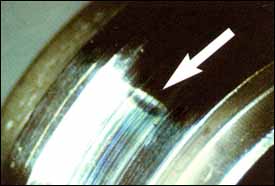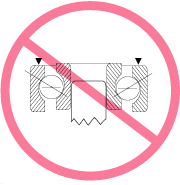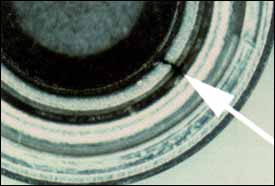| Available Bearings | Bearing Selector | Technical Info | New Products | |||
Bearing Brinelling and Excessive Force in Bearing Assembly || Bearing noise information from Dynaroll
TECHNICAL INFORMATION
TECHNICAL INFO
Overview & Nomenclature
Materials
Cages/Retainers
Shields and Seals
Ball Bearings - Geometry
Ball Bearings - Tolerances
Ball Bearings - Lubrication
Load Rating and Bearing Lifetime
Ball Bearings - Torque
Ball Bearings - Noise
Mounting and Fitting
Assembly Preload
Ball Bearing Handling
Adhesive Practices
Assembly Characteristics
Useful Conversions
Interested in Mechanical Assemblies?
 Visit our Assemblies Section
Visit our Assemblies Section
Read our Quality Policy
Overview & Nomenclature
Materials
Cages/Retainers
Shields and Seals
Ball Bearings - Geometry
Ball Bearings - Tolerances
Ball Bearings - Lubrication
Load Rating and Bearing Lifetime
Ball Bearings - Torque
Ball Bearings - Noise
Mounting and Fitting
Assembly Preload
Ball Bearing Handling
Adhesive Practices
Assembly Characteristics
Useful Conversions
Interested in Mechanical Assemblies?
Read our Quality Policy
BEARING BRINELLING
EXCESSIVE FORCE
The most common cause of small bearing failure is excessive force applied during assembly, which usually results in the following adverse effects on bearing performance:
| ||||||||||||||||||||||



